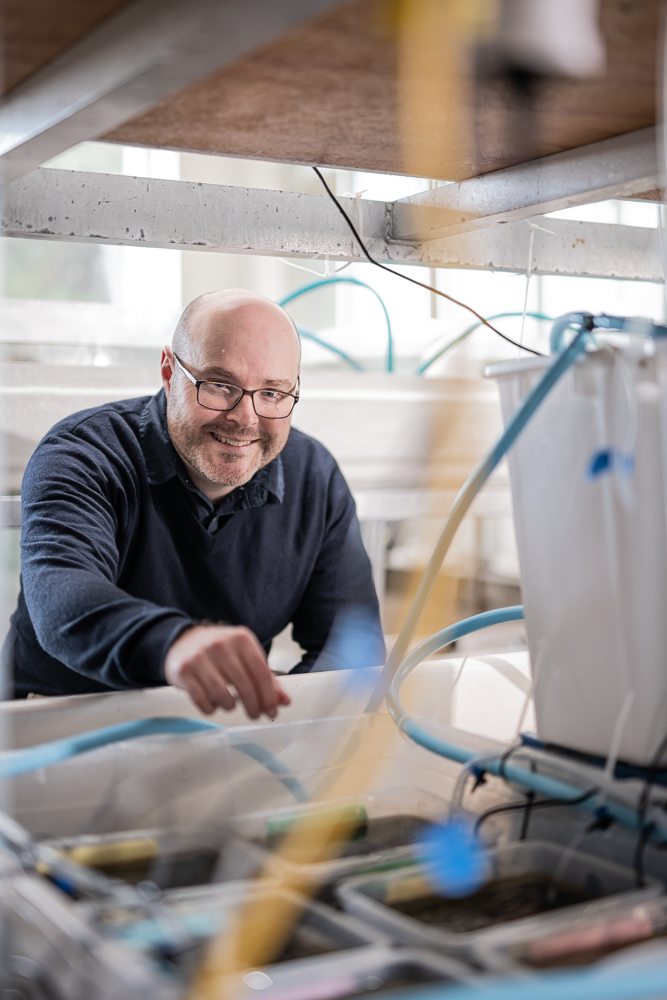“There are big gaps in our knowledge. Take seaweed, which forms the whole habitat for a lot of our fisheries, especially culturally and recreationally important species like pāua, kina, and fin fish. We have little understanding of its ecology and physiology here in New Zealand.
“Everyone is interested in commercially exploited species, but what about the habitats they rely on and what happens once the habitats change or are gone?”
Chris is now focusing on coralline algae, a calcifying red seaweed that binds and cements tropical and temperate reefs together and even forms its own extensive reefs. Coralline algae is more resistant to ocean warming than corals but much more susceptible to ocean acidification.
“We have a lot of traditional coral-dominated reefs worldwide and I am now interested in understanding how those coral reefs might turn more into coralline algal or seaweed-dominated reefs.”




